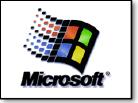|
Split decision for Microsoft
|
 |
December 11, 1997: 9:21 p.m. ET
Computer makers won't have to bundle; contempt charge rejected
|
NEW YORK (CNNfn) - In a blow to Microsoft Corp., a U.S. judge temporarily ordered the software giant to stop requiring computer makers to distribute its Internet Explorer browser along with the Windows 95 operating system.
However, U.S. District Judge Thomas Penfield Jackson Thursday rejected a civil contempt charge brought by the Justice Department which was seeking a fine of $1 million a day against the company.
In his ruling, the judge said forcing Microsoft to keep Windows 95 separate from Internet Explorer would not impose a substantial burden on the company since the two products are already marketed separately.
"Microsoft will remain free to market and promote (Internet Explorer 4.0) just as it presently does - or in any other manner it sees fit - so long as (computer makers) are given the choice of whether or not to accept the product," Jackson wrote.
Jackson also ordered that a special judicial officer, law professor Lawrence Lessig, be appointed to consider the facts and legal precedents that applied to the case. Lessig, a specialist in computers and cyberspace, must submit his report by May 31.
The Justice Department filed suit against Microsoft October 20 charging the software giant was trying to use its dominance of the operating system software to force computer makers to feature its Explorer browser as the default browser.
In a press conference following the announcement, Assistant Attorney General Joel Klein called the order a win for consumers.
"In our view, this is an important decision. From the beginning, the most important thing was to restore choice to the [computer makers] and ultimately consumers. The antitrust division believes that no consumer should be denied the browser of their choice because Microsoft made its computer vendors an offer they couldn't refuse," he said.
Klein said by requiring computer makers to bundle the browser with the operating system, Microsoft was attempting to use advantages that no other company has. (245K WAV) or (245K AIFF)
Microsoft spokesman Mark Murray called the decision "mixed," but said the company was gratified that the judge agreed with it on "several key points."
"We're confident that once the court has reviewed all the facts that it will agree that Microsoft complied fully with the consent decree and that Microsoft's integration of Internet Explorer with Windows 95 is good for consumers," Murray told Reuters news service in a telephone interview.
A Netscape Communications Corp. executive said Thursday the company was "very pleased" with a court order temporarily barring Internet software licensing practices of its rival Microsoft Corp.
"Obviously we're very pleased," said Netscape senior vice president Lori Mirek. "This gets back to our issue of ensuring customer choice in browsers and a level playing field.
Mirek said the ruling clears the way for Netscape to seek to get its browser software pre-installed by computer makers, known as original equipment manufacturers.
"We're anticipating a whole new round of competition," she said. "We're very excited about the opportunity to go after a whole new round of contracts that expire over the next six months."
Netscape holds more than 60 percent of the browser market but Microsoft has been rapidly gaining in the fierce market share battle.
In a partial victory for Microsoft, Jackson said Microsoft had the right to require PC makers and other companies it does business with to sign non-disclosure agreements to protect confidential information.
The government had argued that those agreements hindered its ability to investigate the alleged antitrust violations.
"There is no evidence of record that the NDAs are meant for any purpose other than to require that Microsoft be given notice and an opportunity to object before any confidential information is disclosed that might be of value to a commercial adversary.
"Accordingly, the court will deny, without prejudice, the government's request to strike the NDA provisions from the license agreements and other contracts," Jackson wrote.
Consumer advocate Ralph Nader criticized the decision, saying it didn't go far enough.
"U.S District Judge Jackson gave Microsoft a second bite at the apple by not approving the sanctions in addition to the injunction he issued today. He rejected the government's complaint that Microsoft's non-disclosure agreements obstruct people and firms from coming forward with information to the Justice Department.
"All in all, the decision does little to deter Microsoft's arrogant and predatory business practices which will be the focus of other ongoing investigations by the Justice Department and state attorneys general," he said.
The U.S. Justice Department had asked the court to hold Microsoft in contempt for alleged anti-competitive behavior in the Internet browser market.
The agency's antitrust division charged the world's largest software company violated a 1995 consent decree by trying to use its leverage to require PC manufacturers to license and distribute Microsoft's Internet browser, Internet Explorer along with the company's new operating system Windows 95.
Lessig, a 1989 Yale Law School graduate and law professor at the University of Chicago from 1991 to 1997, is now a visiting law professor at Harvard Law School..
In 1995, he served at Yale as a visiting professor on cyberspace antitrust law. He is currently writing a book on the problems of regulation of cyberspace.
Reuters news service contributed to this report
|
|
|
|
|
 |

|

